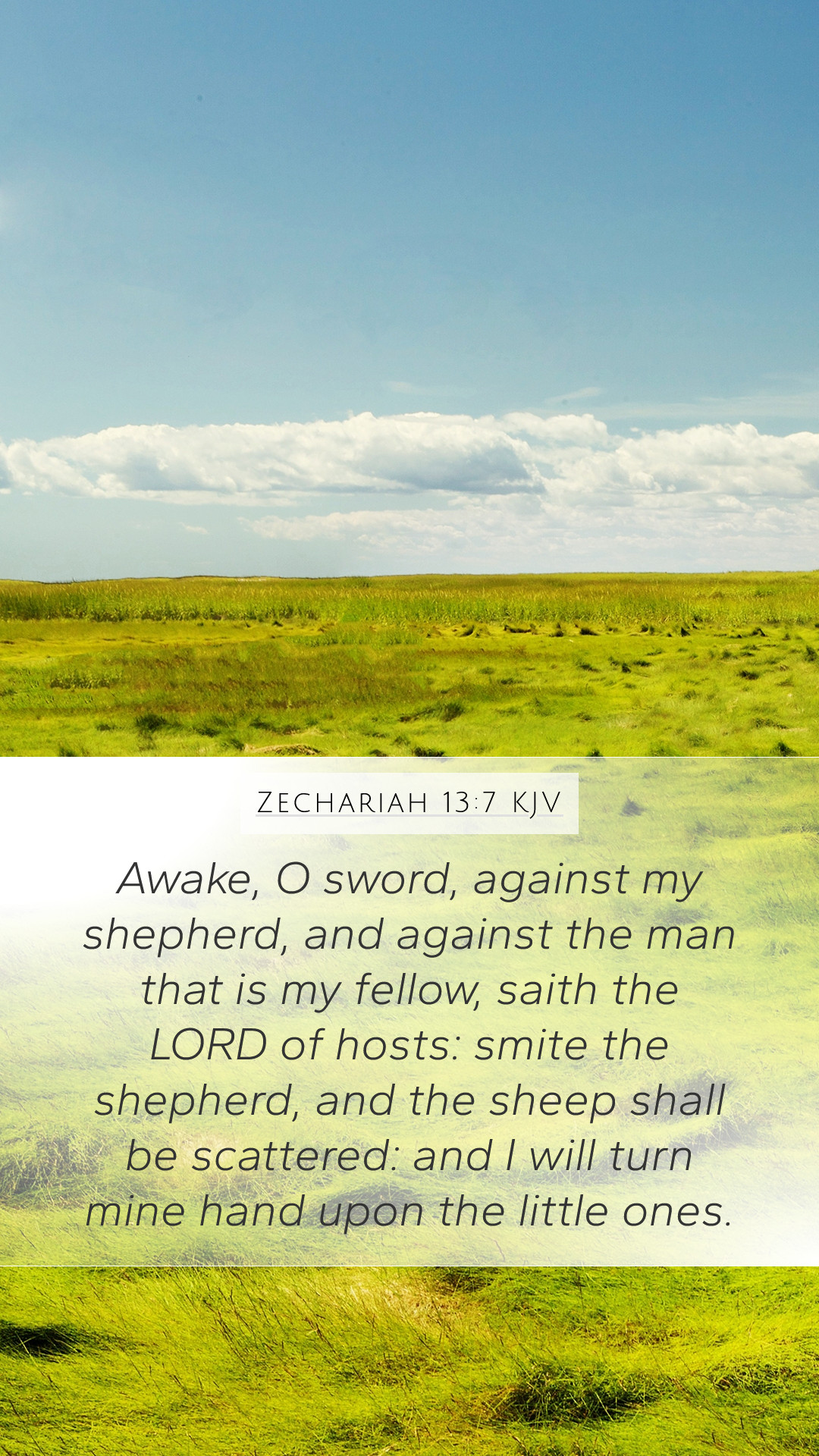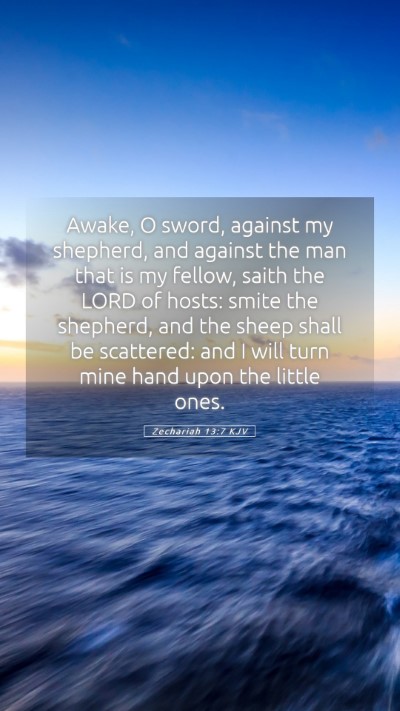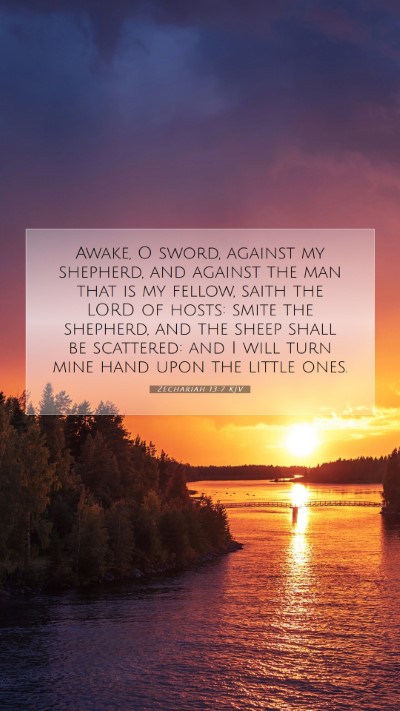Old Testament
Genesis Exodus Leviticus Numbers Deuteronomy Joshua Judges Ruth 1 Samuel 2 Samuel 1 Kings 2 Kings 1 Chronicles 2 Chronicles Ezra Nehemiah Esther Job Psalms Proverbs Ecclesiastes Song of Solomon Isaiah Jeremiah Lamentations Ezekiel Daniel Hosea Joel Amos Obadiah Jonah Micah Nahum Habakkuk Zephaniah Haggai Zechariah MalachiZechariah 13:7 Meaning
What is the meaning of Zechariah 13:7?
Awake, O sword, against my shepherd, and against the man that is my fellow, saith the LORD of hosts: smite the shepherd, and the sheep shall be scattered: and I will turn mine hand upon the little ones.
Zechariah 13:7 Bible Verse Meaning
Understanding Zechariah 13:7
Zechariah 13:7 states: "Awake, O sword, against my shepherd, and against the man that is my fellow, saith the LORD of hosts: smite the shepherd, and the sheep shall be scattered: and I will turn mine hand upon the little ones." This verse holds deep significance within the context of biblical prophecy and the New Testament's fulfillment of God's plan for salvation through Jesus Christ.
Historical Context
- This prophetic verse draws from the time of Zechariah, a post-exilic prophet who encouraged the Jewish people to return and rebuild after Babylonian captivity.
- The 'shepherd' symbolizes God's appointed leader, often connected with Christ in the New Testament, underscoring the theme of sacrificial love and leadership.
Bible Verse Meanings
According to Matthew Henry, this verse exemplifies the divine plan where the shepherd (interpreted as Christ) would have to face suffering, analogous to the calling of many faithful leaders throughout scripture.
Albert Barnes elaborates that the directive to 'smite the shepherd' indicates the inevitable suffering and rejection of Jesus who would come as the true shepherd, leading to the scattering of His followers, akin to the events following His crucifixion.
In contrast, Adam Clarke provides that this verse not only foreshadows Christ's death but also reflects the greater struggle faced by God's people. The 'little ones' represents the faithful remnant, highlighting God's continued care and protection for those who may endure hardships.
Analysis and Commentary
This verse serves as a profound commentary on the sacrificial aspect of Jesus' mission. The 'sword' represents the divine justice that leads to the confrontation between Jesus and His adversaries.
The imagery conveys not only suffering but the idea of tension between God’s sovereign will and human action. Zechariah's prophecy invites readers to contemplate the depth of God's love portrayed through Jesus' willing sacrifice.
Application of the Verse
For believers today, Zechariah 13:7 can serve as a reflection on discipleship and the call to understand the trials faced when following Christ. It encourages individuals to acknowledge the cost of discipleship while emphasizing God's faithfulness to His people even in tough times.
This verse can inspire prayer and deeper Bible study, promoting discussions in bible study groups and fostering bible study insights on how to endure and remain faithful through adversity.
Key Themes
- Suffering and Sacrifice: The inevitability of trials faced by Jesus and His followers, reflecting a pattern found within the Christian walk.
- Divine Providence: The assurance that God watches over His people, especially during times of challenge.
- Prophetic Fulfillment: Understanding how Old Testament prophecies like this one find their fullness in the New Testament through Christ.
Cross References
- Matthew 26:31: Jesus quotes this verse, indicating its fulfillment.
- John 10:11: Identifies Christ as the Good Shepherd.
- Mark 14:50: Discusses the scattering of the disciples after Jesus' arrest.
Conclusion
In summary, Zechariah 13:7 serves as a profound prophecy that encourages bible study lessons focused on understanding the struggles and sacrifices inherent in the Christian faith. This verse embodies a vital connection between the Old Testament and the New Testament, showcasing God's overarching plan for redemption and the trials faced by believers.
For those exploring meaning of Bible verses and seeking bible verse interpretations, this verse invites an in-depth analysis that is both sobering and hopeful.


